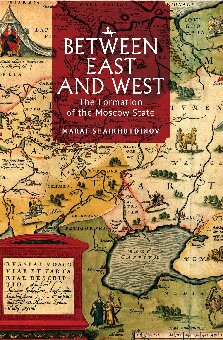

Most ebook files are in PDF format, so you can easily read them using various software such as Foxit Reader or directly on the Google Chrome browser.
Some ebook files are released by publishers in other formats such as .awz, .mobi, .epub, .fb2, etc. You may need to install specific software to read these formats on mobile/PC, such as Calibre.
Please read the tutorial at this link: https://ebookbell.com/faq
We offer FREE conversion to the popular formats you request; however, this may take some time. Therefore, right after payment, please email us, and we will try to provide the service as quickly as possible.
For some exceptional file formats or broken links (if any), please refrain from opening any disputes. Instead, email us first, and we will try to assist within a maximum of 6 hours.
EbookBell Team

5.0
110 reviewsDrawing on a wide range of sources and historiographical material, Between East and West provides a comprehensive analysis of the efforts of the Moscow princes to form a centralized Russian state. According to the author, the unification of Russia around Moscow was not historically inevitable. Tver, Novgorod, and the Grand Duchy of Lithuania also claimed this role, and if they had been victorious, a less authoritarian, less autocratic and less despotic Russian state could have emerged. Professor Shaikhutdinov rejects the concept of the “Mongol-Tatar yoke” and claims that relations between Moscow and Ulus Jochi (Golden Horde) were more complicated and interdependent. The influence of Ulus Jochi on Moscow was especially strong in the political, economic and military spheres, while the religious field was dominated by the influence from Byzantium. The volume discusses in detail the geopolitical aspirations of Russia and the “Moscow―Third Rome” theory. In sum, the formation of the Moscow state was directly influenced by both internal and external factors, countries of the East and the West.